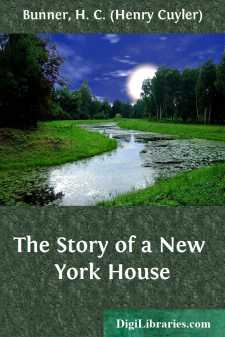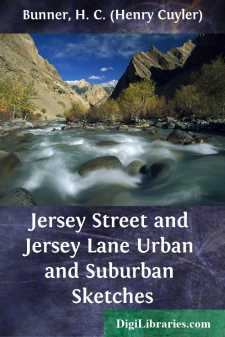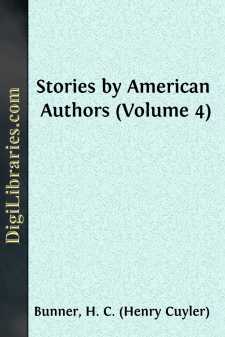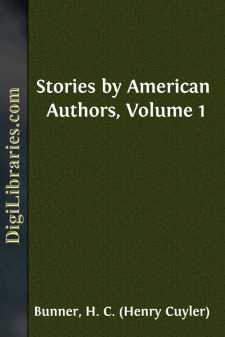Categories
- Antiques & Collectibles 13
- Architecture 36
- Art 48
- Bibles 22
- Biography & Autobiography 813
- Body, Mind & Spirit 142
- Business & Economics 28
- Children's Books 17
- Children's Fiction 14
- Computers 4
- Cooking 94
- Crafts & Hobbies 4
- Drama 346
- Education 46
- Family & Relationships 57
- Fiction 11829
- Games 19
- Gardening 17
- Health & Fitness 34
- History 1377
- House & Home 1
- Humor 147
- Juvenile Fiction 1873
- Juvenile Nonfiction 202
- Language Arts & Disciplines 88
- Law 16
- Literary Collections 686
- Literary Criticism 179
- Mathematics 13
- Medical 41
- Music 40
- Nature 179
- Non-Classifiable 1768
- Performing Arts 7
- Periodicals 1453
- Philosophy 64
- Photography 2
- Poetry 896
- Political Science 203
- Psychology 42
- Reference 154
- Religion 513
- Science 126
- Self-Help 84
- Social Science 81
- Sports & Recreation 34
- Study Aids 3
- Technology & Engineering 59
- Transportation 23
- Travel 463
- True Crime 29
H. C. (Henry Cuyler) Bunner
Henry Cuyler Bunner (1855–1896) was an American writer and editor known for his light, humorous verse, short stories, and plays. He was the editor of the humor magazine "Puck" and became influential in shaping American literary comedy during the late 19th century. His notable works include "The Midge" and "The Story of a New York House," both of which capture the essence of New York life during his time. Bunner's writing combined wit and sentimentality, often portraying the quirks of urban and middle-class life with keen observation and gentle humor.
Author's Books:
Sort by:
I. "I hear," said Mrs. Abram Van Riper, seated at her breakfast-table, and watching the morning sunlight dance on the front of the great Burrell house on the opposite side of Pine Street, "that the Dolphs are going to build a prodigious fine house out of town—somewhere up near the Rynders's place." "And I hear," said Abram Van Riper, laying down last night's Evening...
more...
JERSEY AND MULBERRY I found this letter and comment in an evening paper, some time ago, and I cut the slip out and kept it for its cruelty: To the Editor of the Evening ——. Sir: In yesterday's issue you took occasion to speak of the organ-grinding nuisance, about which I hope you will let me ask you the following questions: Why must decent people all over town suffer these pestilential beggars...
more...
"A conceited fool" is a not uncommon expression. Now, I know that I am not a fool, but I also know that I am conceited. But, candidly, can it be helped if one happens to be young, well and strong, passably good-looking, with some money that one has inherited and more that one has earned—in all, enough to make life comfortable—and if upon this foundation rests also the pleasant...
more...
WHO WAS SHE? Come, now, there may as well be an end of this! Every time I meet your eyes squarely I detect the question just slipping out of them. If you had spoken it, or even boldly looked it; if you had shown in your motions the least sign of a fussy or fidgety concern on my account; if this were not the evening of my birthday, and you the only friend who remembered it; if confession were not good...
more...





